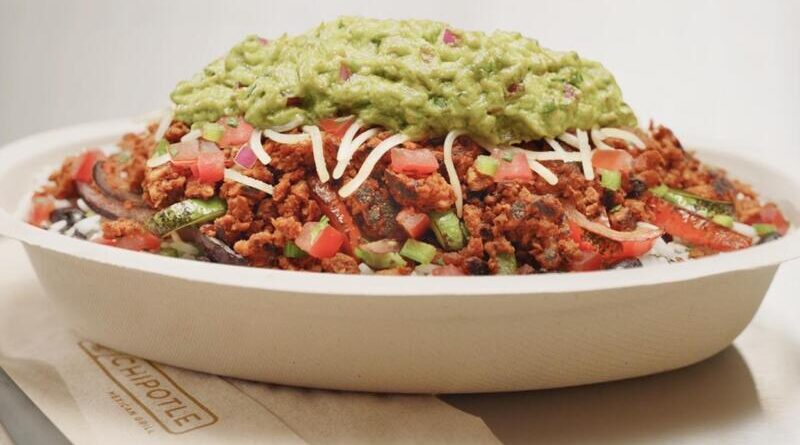Discover the Flavorful World of Chipotle
In the fast-casual dining sector, Chipotle has acquired a household name because of its tasty food with Mexican influences. Chipotle has made a name for itself in the food industry despite its modest beginnings and ascent to fame. This article delves into the principles, menu items, and significance of Chipotle, examining what makes it unique and the reasons it remains globally popular among foodies. Come with us as we explore the meaning behind Chipotle’s success and see what makes it more than just a place to get burritos.
Chipotle’s Mission and Values
The goal of Chipotle is to serve delectable meals prepared with premium ingredients that are ethically sourced. The organization prioritizes openness, sustainability, and giving its clients the power to choose their meals with knowledge.
Chipotle aims to positively impact people and the environment by focusing on using fresh. Ethically sourced foods and adhering to ethical business standards.
Chipotle’s Menu and Food Offerings
A range of Mexican-inspired foods, such as tacos, salads, quesadillas, burritos, and burrito bowls, are available at Chipotle. A variety of proteins, including grilled chicken, steak, carnitas, barbacoa, sofritas, and vegetarian options, are available to customers. Beans, fajita veggies, salsa, cheese, sour cream, guacamole, and lettuce are among the toppings.
Cilantro-lime rice is another. To satisfy a variety of dietary requirements, Chipotle also provides customizable options, such as gluten-free and vegetarian/vegan selections. Chipotle’s menu offers tasty and adaptable options for every palette, with an emphasis on freshness and quality.
Chipotle’s Impact on the Fast Food Industry
The fast food sector has been significantly impacted by Chipotle. Which has changed consumer expectations and established new benchmarks for sustainability, quality, and openness. This is a thorough examination of Chipotle’s impact on the fast-food industry:
Changing Consumer Preferences:
Customers’ tastes have been shifting toward fresher, healthier, and more ethically sourced fast food options, which has coincided with Chipotle’s success. More and more consumers are looking for healthier and more transparent fast food alternatives as they become more aware of the effects their eating decisions have on their health and the environment.
Chipotle Emphasis on Freshness and Quality:
Chipotle has set a higher standard for the fast food business by prioritizing the use of locally sourced, fresh ingredients. By putting quality above quantity and openness above secrecy. Chipotle has refuted the idea that quick food must always be associated with processed, inferior products.
In response, some fast-food restaurants have changed their offerings to highlight authenticity and freshness in their marketing campaigns.
Customization and Personalization:
Chipotle has transformed the fast food industry by offering customized menu options that let patrons customize their dishes to suit their tastes. Customers who are in search of diversity and autonomy over their eating experiences have found resonance in this emphasis on customization.
As a result, in response to shifting consumer preferences, other fast-food restaurants have implemented comparable customization choices.
Influence on Supply Chain Practices:
Chipotle’s dedication to environmentally friendly sourcing methods has repercussions for the whole fast food sector. Chipotle’s emphasis on forming alliances with vendors who follow moral and ecologically conscious standards has encouraged other restaurants to reassess their supply chain procedures. The whole food sector may change as a result of this move towards increased sustainability and openness.
Chipotle Competitive Pressure and Innovation:
Because of Chipotle’s success, other fast-food companies are vying for customers by trying to imitate its business strategy. This has led to more rivalry in the fast food industry.
This competitive pressure has led to increasing creativity and experimentation as chains seek to differentiate themselves and attract customers. Fast food companies are continuously altering to stay relevant in a world that is changing quickly, from menu expansions to digital initiatives.
Chipotle Influence on Food Culture:
Apart from its immediate influence on the fast food sector, Chipotle has also contributed to the development of wider food culture trends. The company’s focus on tasty, fresh ingredients and adaptable menu options has changed the way people think about and prepare meals.
Chipotle has promoted a better awareness of authenticity and simplicity in eating experiences while also contributing to the popularization of Mexican-inspired cuisine.
Conclusion
In summary, Chipotle has evolved from being just another fast-casual restaurant choice to a household name and a cultural phenomenon. Chipotle’s dedication to sustainability, quality, and personalization has transformed not only the fast food sector but also wider food culture trends.
With an emphasis on using only the freshest, ethically sourced foods and enabling customers to make educated decisions, Chipotle has raised the bar for openness and morality in the food industry.
